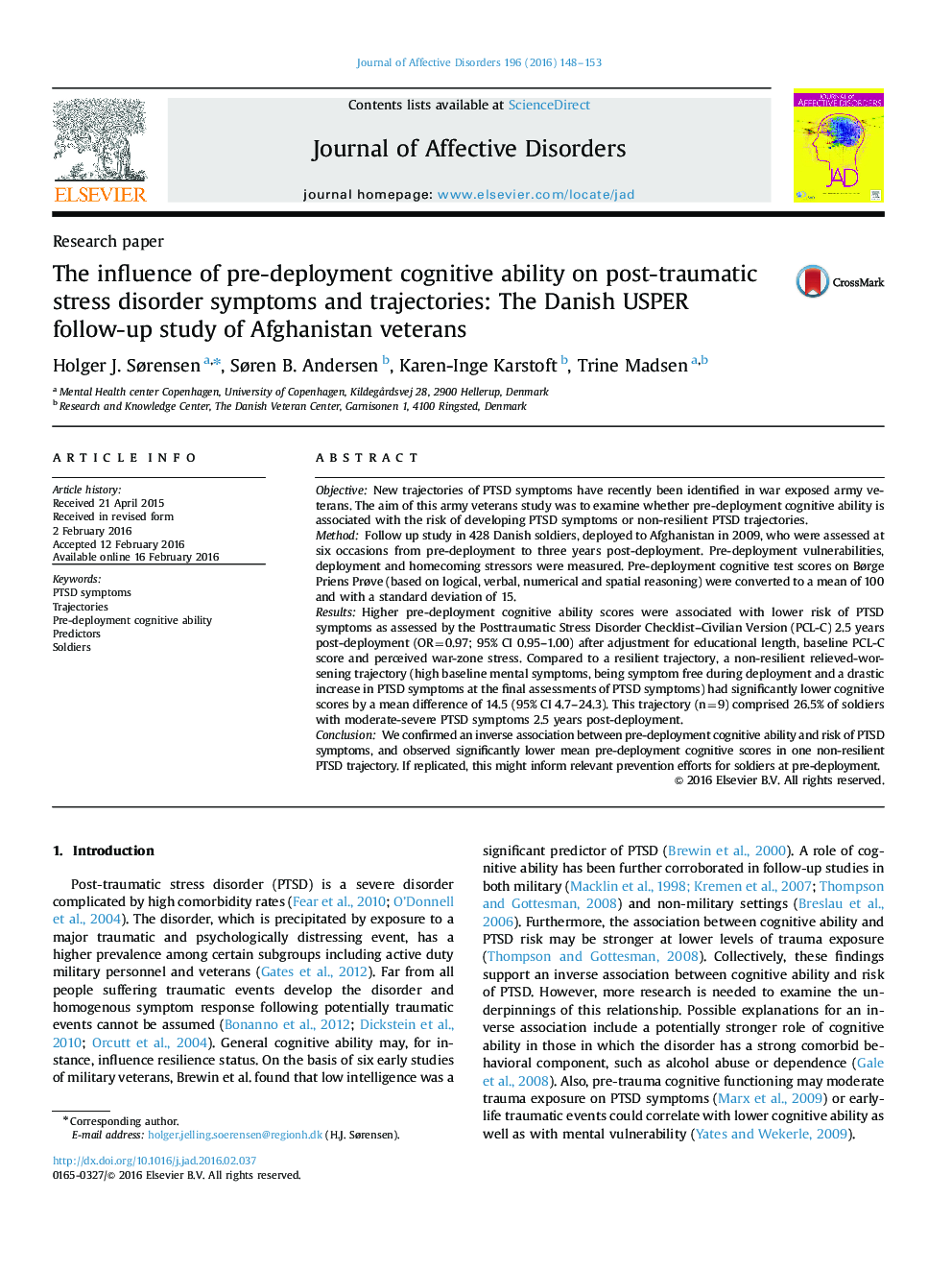| کد مقاله | کد نشریه | سال انتشار | مقاله انگلیسی | نسخه تمام متن |
|---|---|---|---|---|
| 6230330 | 1608129 | 2016 | 6 صفحه PDF | دانلود رایگان |
- Higher pre-deployment cognitive ability was associated with lower risk of PTSD symptoms 2.5 years post-deployment.
- The association between cognitive ability and risk of PTSD symptoms was independent of pre-deployment mental symptoms.
- One non-resilient trajectory, the relief-worsening trajectory, had lower cognitive ability scores than the resilient trajectory.
ObjectiveNew trajectories of PTSD symptoms have recently been identified in war exposed army veterans. The aim of this army veterans study was to examine whether pre-deployment cognitive ability is associated with the risk of developing PTSD symptoms or non-resilient PTSD trajectories.MethodFollow up study in 428 Danish soldiers, deployed to Afghanistan in 2009, who were assessed at six occasions from pre-deployment to three years post-deployment. Pre-deployment vulnerabilities, deployment and homecoming stressors were measured. Pre-deployment cognitive test scores on Børge Priens Prøve (based on logical, verbal, numerical and spatial reasoning) were converted to a mean of 100 and with a standard deviation of 15.ResultsHigher pre-deployment cognitive ability scores were associated with lower risk of PTSD symptoms as assessed by the Posttraumatic Stress Disorder Checklist-Civilian Version (PCL-C) 2.5 years post-deployment (OR=0.97; 95% CI 0.95-1.00) after adjustment for educational length, baseline PCL-C score and perceived war-zone stress. Compared to a resilient trajectory, a non-resilient relieved-worsening trajectory (high baseline mental symptoms, being symptom free during deployment and a drastic increase in PTSD symptoms at the final assessments of PTSD symptoms) had significantly lower cognitive scores by a mean difference of 14.5 (95% CI 4.7-24.3). This trajectory (n=9) comprised 26.5% of soldiers with moderate-severe PTSD symptoms 2.5 years post-deployment.ConclusionWe confirmed an inverse association between pre-deployment cognitive ability and risk of PTSD symptoms, and observed significantly lower mean pre-deployment cognitive scores in one non-resilient PTSD trajectory. If replicated, this might inform relevant prevention efforts for soldiers at pre-deployment.
Journal: Journal of Affective Disorders - Volume 196, 15 May 2016, Pages 148-153
